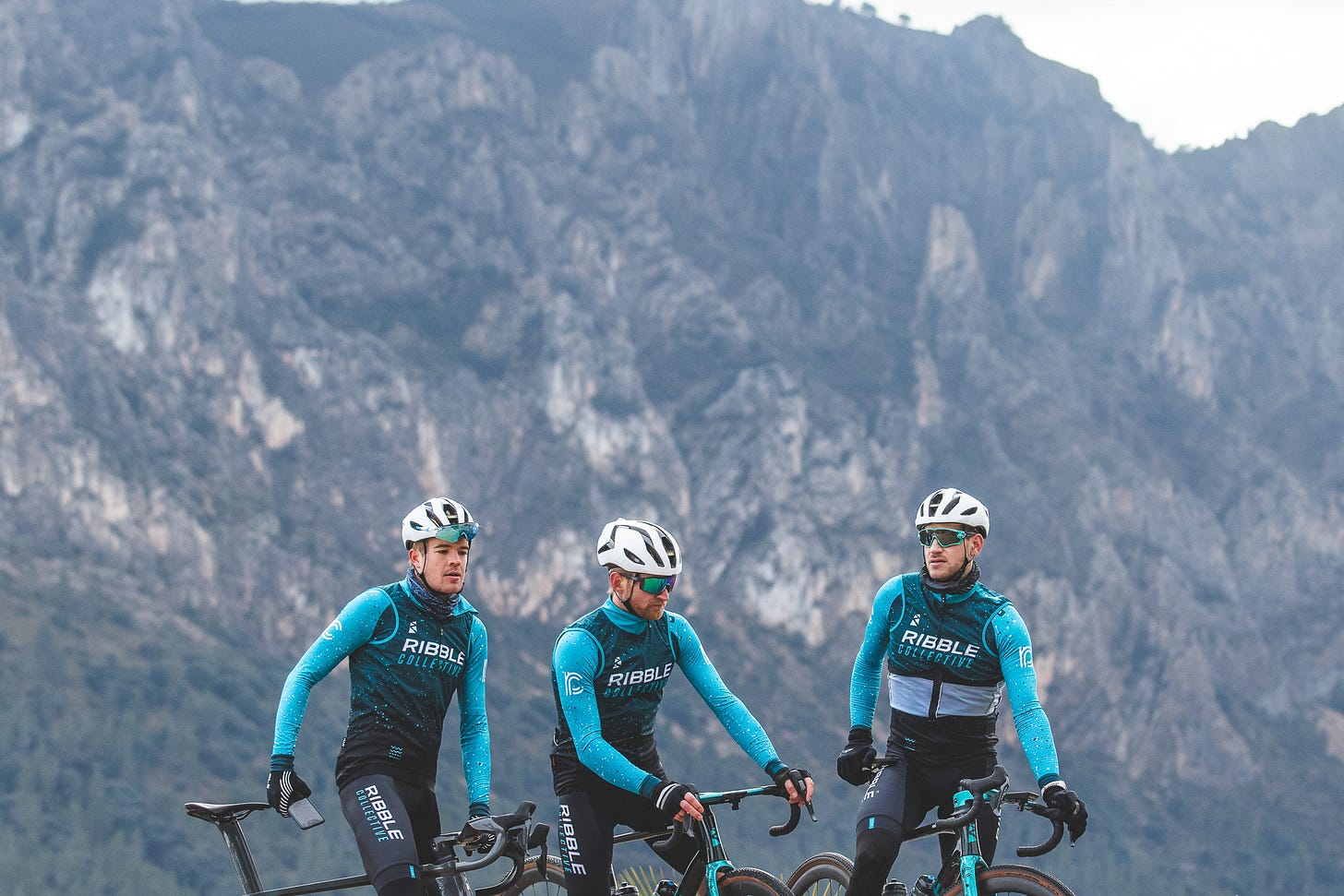Survivorship Bias
"If we look at it in black and white. I am a failure."
This article was written in conjunction with Pullwood Consulting. Throughout the year, I’ll be writing a series of article that find links between the sport and business world. Here’s the first.
Being aware of your non-negotiables is perhaps the most powerful trait you can have.
You’ve got to be a good loser to be a professional cyclist. Most professional cyclists will race between fifty and seventy days in a year. Most professional cyclists will win zero times per year. Maybe the best riders in the world win fifteen races in a year. But, for most it is zero.
There is a strong survivorship bias in both professional sport and business. We read books from those who reached the pinnacle of their sport, or sold their business for billions of dollars. We listen to podcasts about how they sacrificed and grafted to become successful. But, what about the person who sacrificed just as much, who worked just as hard but didn’t get the big result, pay cheque or contract?
If we look at it in black and white. I am a failure. I was a very successful junior cyclist, I won races in Europe and finished 8th at the World Championships. I was billed as “one to watch” but never reached the level many expected me to. For the past five years, I had the goal of becoming a World Tour rider (cycling’s Premier League) by the age of twenty-two. I’m sitting here aged twenty-two and I’m not a World Tour rider.
Throughout my childhood I played football. I was a goalkeeper, and a good one at that. I hated losing. In fact, I still hate losing. I’m overly competitive and I hate people being better than me. In football, the average win percentage is just shy of 50%, pro-cyclists can go a whole career without a win. For many, losing becomes the norm.
Most races have 175 riders starting in them, so already the odds are stacked against you. Playing football you have to beat one team, racing bikes you have to beat 174 other riders. And yes, I’d include my own teammates in that number.
In professional cycling, “losing” is not a phrase that is used too often. If you finish in the Top 10, it is classed as a good performance, not a loss. There is simply a disassociation to losing.
In the fall of last year, it was clear that I wasn’t going to be getting a World Tour contract. I wasn’t even able to secure a contract in cycling’s second or third tier. Going back to that thing about looking at it in black and white: I am a failure.
I battled with myself a lot over those months. Surely I should just quit? I’d been a part of the best rider development programme in the world, yet I still wasn’t able to step up to the big leagues. The easiest thing to do was quit. I gave it a good shot, I fell short. Time to try something new? Well, kinda.
My goals shifted. It’s amazing what you can do when you have your back against the wall. From every corner of my life I had friends and family giving me their opinion on what my future should look like. Some said go to university, others told me to swallow my pride and drop down a sporting level, others told me to pursue my writing career. Throughout all of this, I knew exactly what I didn’t want to do, but I didn’t really know what I wanted to do.
Find your non-negotiables.
I knew I wanted to carry on racing at a high level, I knew I wanted to progress my voice in the sport as a writer. I also knew that I didn’t want to do it on the traditional path. I wanted to do it on my own terms. Since leaving school at eighteen I’d trodden the traditional route in cycling and it did cause me to lose some love for the sport.
There are some things that you have to be happy to wriggle on. The perfect example is my kit design for my 2023 racing project. I had high hopes of designing a custom kit in British Racing Green and having subtle nods to my life on the jersey.
When negotiating with my bike sponsor, Ribble Cycles, they asked to take control of kit design. That was disappointing at first, but I accepted it. If they’d have asked to take control of my race calendar I’d have stopped the talks. Know your non-negotiables and stick to them.
Resilience is a term that is bandied around a lot in sport and business. Defined as,“The capacity to withstand or to recover quickly from difficulties.”, there are countless examples.
On the sporting side, I could tell the story of how I once fractured my knee with twenty kilometres to go in the race, but got back up and finished. On the business side, there is the story of not being able to find a traditional road contract, but forging my own path to where I am today.
Survivorship bias is strong. It always will be. On one hand, I am a failure. I didn’t achieve my World Tour goal, I didn’t race the Tour de France. But, with a slight pivot, a slight reassessment I’ve now got new targets. I’ve been knocked down many a time chasing the dream, so what’s once more?
I’ve no longer got the tangible goal of a World Tour contract or a spot in a Tour de France team. I don’t know exactly what my end-goal looks like anymore either. In a strange way, I think I’m better off for that.
While you’re here…
I’ve added both paid subscription and a ‘Buy Me A Coffee’ link to this post. As the year progresses, I’m planning on building this blog and putting out articles which I’ve always wanted to write but for whatever reason, haven’t wanted to pitch.
Any money that I make from either my Substack, or BMaC link will go straight back into supporting my 2023 racing project. I am planning on keeping all content on here free to view though.
https://www.buymeacoffee.com/joelaverick
Project TAG, proudly partnering with…







You have figured out a way to ride the best bikes in fantastic places, in top races. No failure there. Have a blast and enjoy your freedom.
🤝